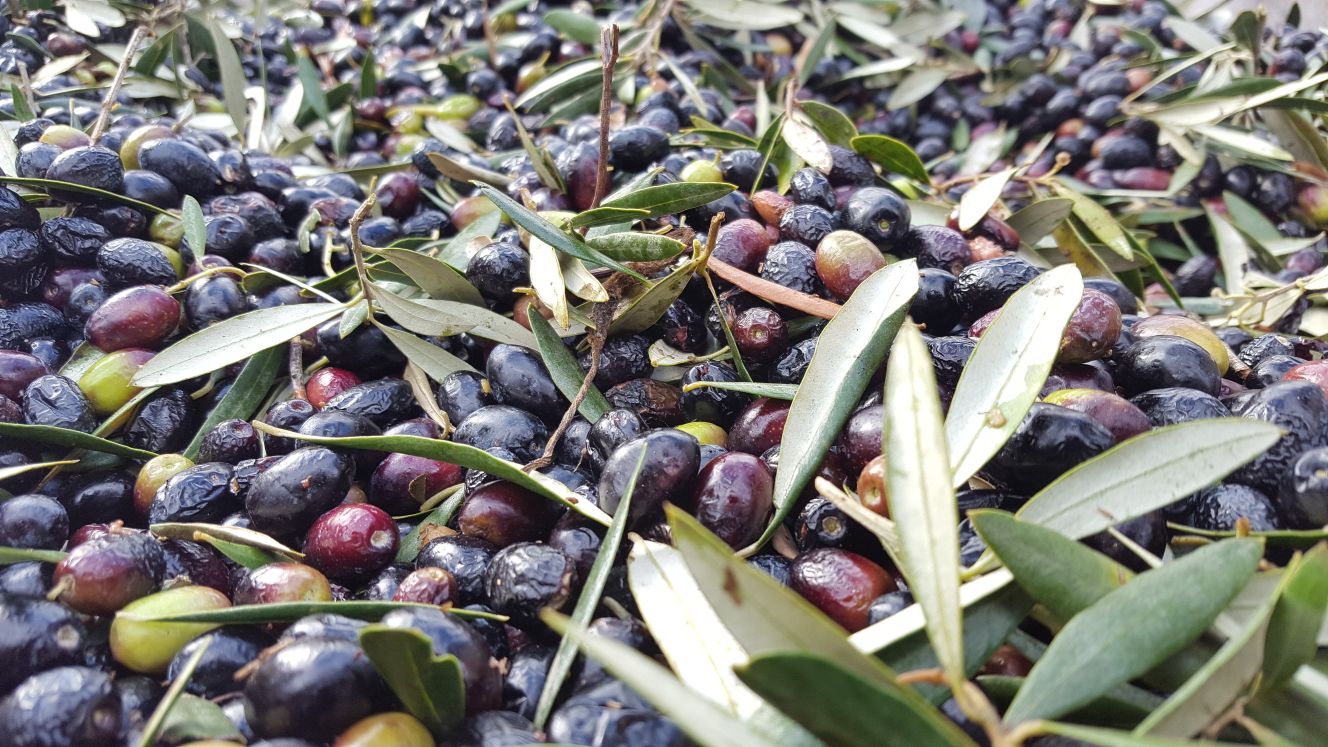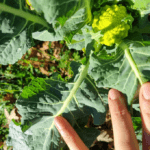
The Olive Harvest
When we agreed to participate in the Vinha da Manta olive harvest, my mind conjured bucolic images of a team of volunteers bundled up in the cold November mornings but stripping down to t-shirts as we worked in the warm sun throughout the day, shaking down olive trees and gathering the fruit they delivered on nets placed on the ground.
We had a great team, with eight people flying in to help for the week. Most were Dutch, with two Canadians thrown into the mix – and us, of course. Two local workers who are at Vinha da Manta a few days per week and Menno, le boss, completed the headcount.
Everything was unfolding according to my expectations when suddenly, someone handed me a long stick. The look of puzzlement on my face said it all. “You hit the tree with it, to make the olives fall off.” Oh. Right.
As it turns out, harvesting olives involves not just hitting but whacking trees. More modern approaches include motor-powered machines that vibrate and shake the branches until the stubborn green and black fruit give in to gravity and drop to the ground. That, however, requires the trees to be planted somewhere reachable by tractor so you can bring the machines with you. In our case, trees were not that accessible roughly 50% of the time – so we went old school, and used sticks.
A complementary way to do things is for someone to take the opportunity to prune the trees, cutting branches that jut up towards the sky from the middle of the tree and are therefore hard to reach. In that case, we got to use shorter sticks to whack cut-off branches. Same same, but different.
Once a tree has graciously (ahem) given us all its olives, we gather them up in the net that was laid out underneath and bring them to a sorting station – in our case a large white tarp where a mound of freshly harvested olives can be sorted by a few volunteers. This means taking out as many small branches, sticks, and leaves as possible while ensuring all the olives are collected. The resulting pile gets transferred into bags, ready for the lagar (press).
The nets are specific to olive picking as they are quite big and rectangular but with a circle cut out in the middle (that’s the part that goes around the tree trunk) and one side divided into two large flaps so you can easily set it up. Well, relatively easily because even after a week, managing and maneuvering those nets was a challenge.
Little known fact: olives are not edible when picked off the tree. They won’t make you sick, but they taste horrendous (ask Francois; he was tricked into eating one). Olives you snack on at home or in bars have been cured in brine, i.e. salty water, and perhaps additionally marinated in oil.
We worked five hours a day, with a mid-morning coffee break where we got to sample various Portuguese cakes – Bolo del Rei, the King’s Cake, was a definite favorite (think brioche with sugar and nuts. What’s not to love!) – before a late lunch and free afternoons.
At the end of the week, we transported our bounty to the lagar – in this case a cold organic press (the alternative is a hot press which produces more oil but of slightly lesser quality) – and were able to see how the magic works: olives go through a sorter that combines shaking with airflow to get the leftover leaves and sticks out of the way, then the olives are turned into sludge (a deep purple mush that looks like tapenade and smells divine), the sludge is pressed, and tadah! Olive oil comes out.
Our week translated to 6 workdays and 1 rainy day, 50 bags for 1500kg of olives, and 278 liters.
I would give you the link to order some of this olive oil goodness, but it is either earmarked for the Vinha da Manta kitchen or already spoken for and to be delivered to happy customers in the Netherlands come January. That means you can either come and visit this summer, or take my word for it when I tell you it’s some of the best olive oil I’ve ever had.
As a bonus, I realized that the whacking was not only a great workout and the best way to stay warm, but also the best kind of therapy. You get to vent any and all frustrations, and it’s constructive too because you’re harvesting olives. Now I feel rebooted and ready to tackle more Portuguese bureaucracy, ha.




Wiki
Hello ,
I saw your tweet about animals and thought I will check your website. I like it!
I love pets. I have two beautiful thai cats called Tammy(female) and Yommo(male). Yommo is 1 year older than Tommy. He acts like a bigger brother for her. 🙂
I have even created an Instagram account for them ( https://www.instagram.com/tayo_home/ ) and probably soon they will have more followers than me (kinda funny).
I have subscribed to your newsletter. 🙂
Keep up the good work on your blog.
Regards
Wiki